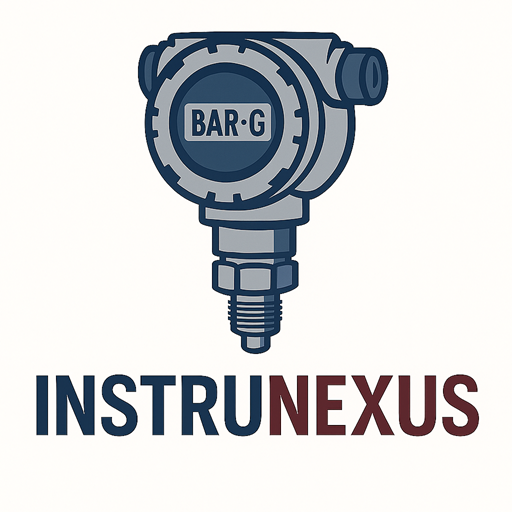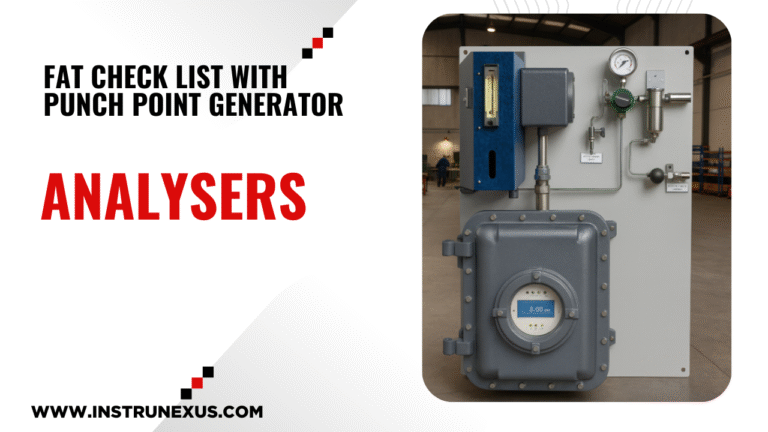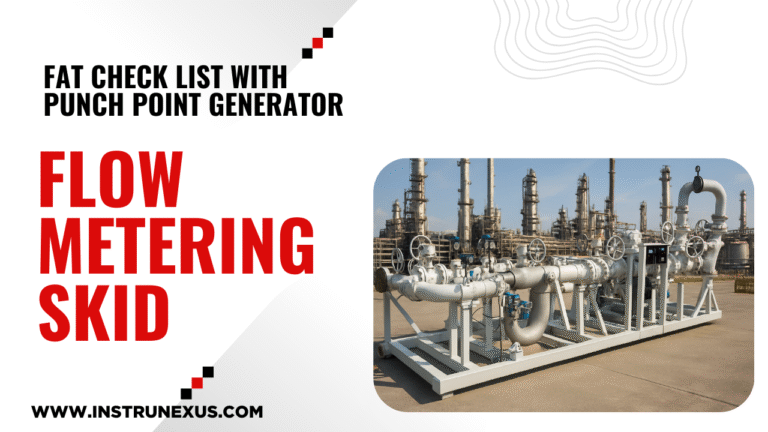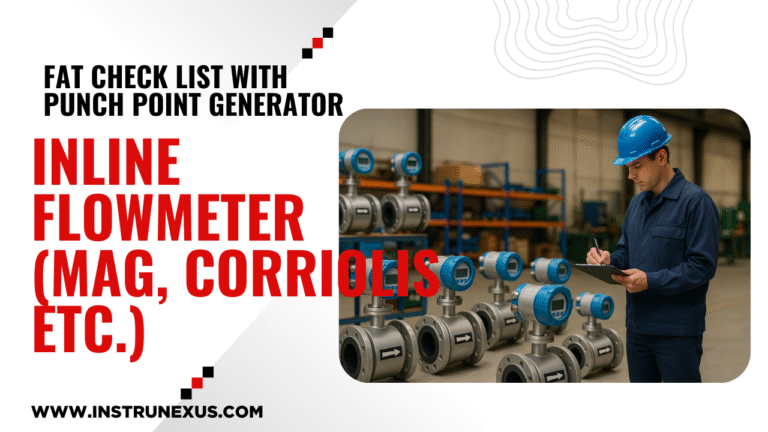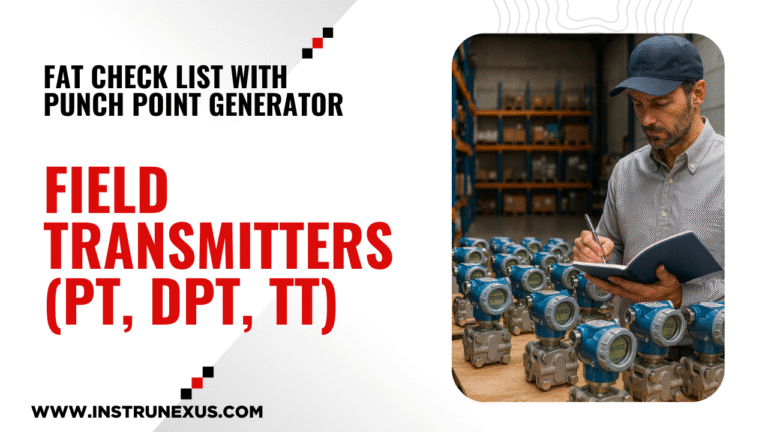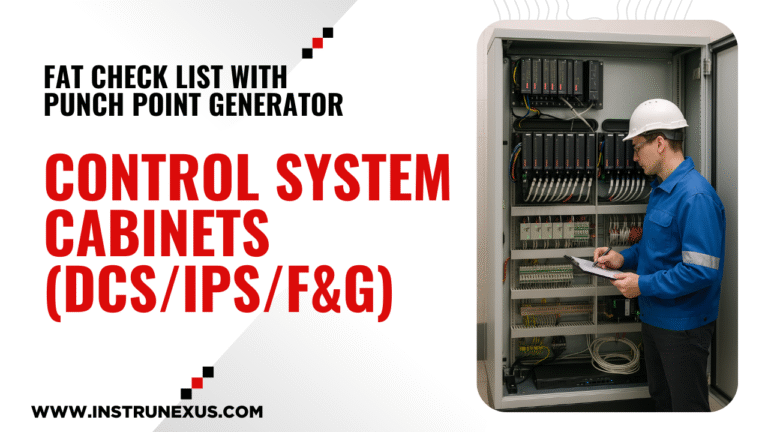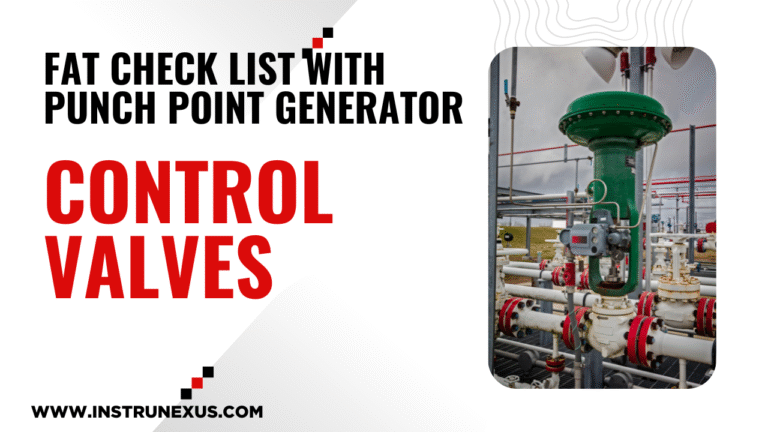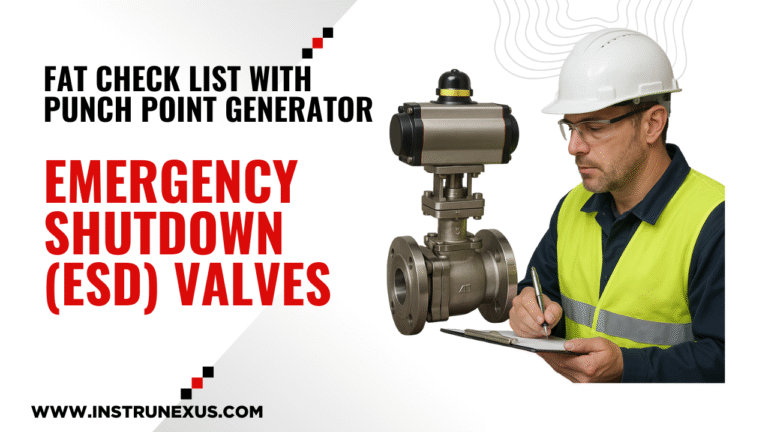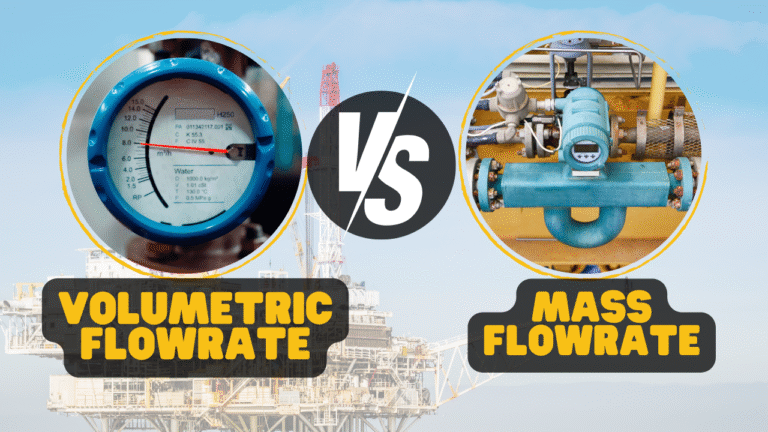Recent Updates
Analyzer System – Factory Acceptance Test (FAT) Checklist Factory Acceptance Test (FAT) Report Analyzer with Sample Conditioning System Report ID Project Name Purchase Order (PO) No. Analyzer Tag No. FAT Date Punch List Add Observed Punch Item Non-Conformance Description Suggested Corrective Action Add Item The following items require corrective action...
Flow Metering Skid – Factory Acceptance Test (FAT) Checklist Factory Acceptance Test (FAT) Report Flow Metering Skid Report ID Project Name Purchase Order (PO) No. Skid Tag No. FAT Date Punch List Add Observed Punch Item Non-Conformance Description Suggested Corrective Action Add Item The following items require corrective action before...
Inline Flowmeter – Factory Acceptance Test (FAT) Checklist Factory Acceptance Test (FAT) Report Inline Flowmeter (Magnetic, Coriolis, Vortex, etc.) Report ID Project Name Purchase Order (PO) No. Flowmeter Tag No. FAT Date Punch List Add Observed Punch Item Non-Conformance Description Suggested Corrective Action Add Item The following items require corrective...
Field Transmitter (PT, DPT, TT) – Factory Acceptance Test (FAT) Checklist Factory Acceptance Test (FAT) Report Field Transmitter (PT, DPT, TT) Report ID Project Name Purchase Order (PO) No. Transmitter Tag No. FAT Date Punch List Add Observed Punch Item Non-Conformance Description Suggested Corrective Action Add Item The following items...
DCS/IPS/F&G Cabinet – Factory Acceptance Test (FAT) Checklist Factory Acceptance Test (FAT) Report DCS/IPS/F&G System Cabinets Report ID Project Name Purchase Order (PO) No. Cabinet Tag No. FAT Date Punch List Add Observed Punch Item Non-Conformance Description Suggested Corrective Action Add Item The following items require corrective action before dispatch...
Control Valve – Factory Acceptance Test (FAT) Checklist Factory Acceptance Test (FAT) Report Control Valve Report ID Project Name Purchase Order (PO) No. Control Valve Tag No. FAT Date Punch List Add Observed Punch Item Non-Conformance Description Suggested Corrective Action Add Item The following items require corrective action before dispatch...
ESD Valve – Factory Acceptance Test (FAT) Checklist Factory Acceptance Test (FAT) Report Emergency Shutdown (ESD) Valve Report ID Project Name Purchase Order (PO) No. ESD Valve Tag No. FAT Date Punch List Add Observed Punch Item Non-Conformance Description Suggested Corrective Action Add Item The following items require corrective action...
Volumetric vs. Mass Flow Rate: An Interactive Guide Flow Measurement Explorer Concepts Fluid Behavior Technologies Applications Full Report Measuring Flow: Volume or Mass? A fundamental choice in fluid systems is deciding what to measure. Are you concerned with the **space** a fluid occupies (Volumetric Flow) or the **matter** it contains...
Interactive Cascade Flow Control Loop Explainer Understanding Cascade Flow Control Loops An Interactive Guide to Advanced Process Control What is Cascade Control? In process control, a standard feedback loop uses one measurement (the process variable or PV) to control one manipulated variable (MV). However, some processes have secondary variables that...
